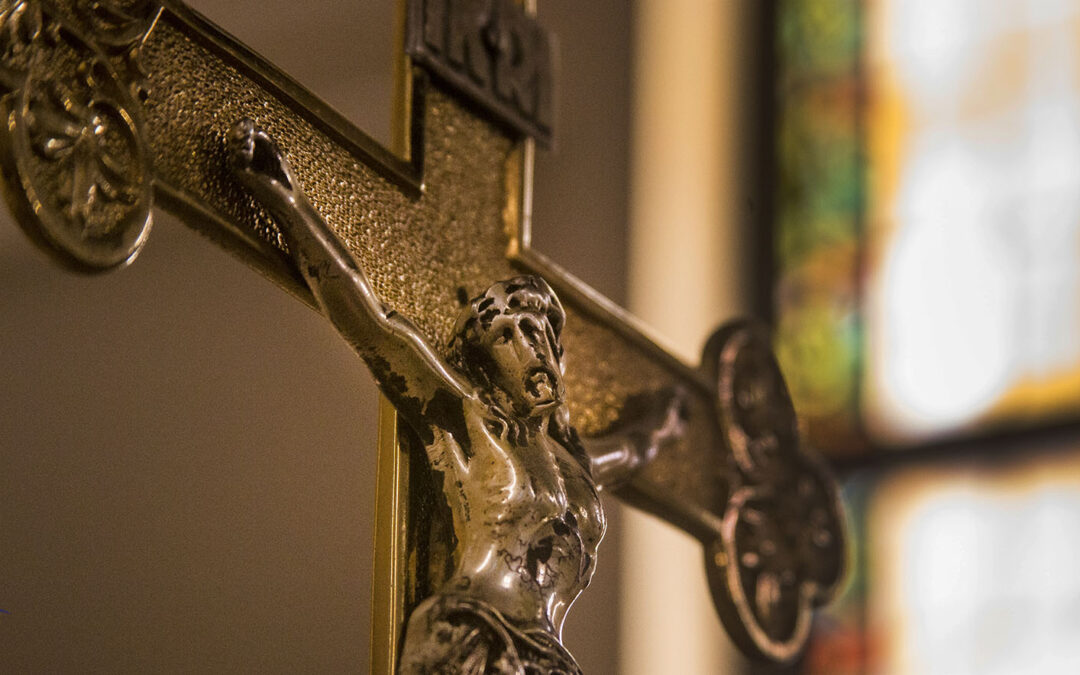Dear Friends,
I am always reading several books at the same time – a novel for pleasure, a theology or history book to keep my mind working, a book on spirituality and perhaps some poetry. My theology reading during the Easter season is a book written twenty years ago by N.T. Wright on the Resurrection. It is unlikely that I will get through it any time soon. He is a scripture scholar and writes long, impressive tomes. One of the points he is trying to make in the book on the resurrection is that there is good support for concluding that the resurrection did take place. He looks at the beliefs of Judaism in Jesus’ day and the preponderance of people who claim to have an experience of the risen Jesus.
Wright points out in the book that no event in past history can be empirically proven the way something in a laboratory can be proven. We cannot know that William the Conqueror invaded England in 1066 the same way we can know the results of a chemistry experiment. However, we can still say that the things in history happened if there is a good deal of historical evidence that they happened.
So, Wright argues, historians need to answer the question, “what explanation do you have for the rapid development of this new understanding of the resurrection and for the explosive growth in the church?” Wright says, “No other explanations have been offered, in two thousand years of sneering skepticism…that can satisfactorily account for how the tomb came to be empty, how the disciples came to see Jesus, and how their lives and worldviews were transformed.” He says, “the historical study of early Christian practice and hope leaves us no choice but to conclude that this unfortunate belief (resurrection) was what all early Christians held. Indeed, they professed that it was the very center of their life.”
He would argue that belief in the resurrection of Jesus is NOT a blind leap of faith because it has left an enormous footprint in history. He would insist that faith in the resurrection does not reject human reason but, rather, it transcends what we call history and science. He would say that it is similar to how human beings act in ways that are important to them. These actions are not based upon scientific evidence but that which transcend science. Things like loving and seeing beauty, honoring human dignity and demonstrating compassion, and moral living. All these things cannot be scientifically proven but they are so important to human life.
I have not read all 817 pages…yet. But jumping ahead to the end, let me give you his conclusion: “no wonder the Herods, the Caesars and the Sadducees of this world, ancient and modern, were and are eager to rule out all possibility of actual resurrection. They are, after all, staking a counter-claim on the real world. It is the real world that the tyrants and bullies (including intellectual and cultural tyrants and bullies) try to rule by force, only to discover that in order to do so they have to quash all rumors of resurrection, rumors that would imply that their greatest weapons, death and destruction, are not after all omnipotent. But it is the real world, in Jewish thinking, that the real God made, and still grieves over. It is the real world that, in the earliest stories of Jesus’ resurrection, was decisively and forever reclaimed by that event, an event which demanded to be understood, not as a bizarre miracle, but as the beginning of a new creation. It is the real world that, however complex this may become, historians are committed to studying. And, however dangerous this may turn out to be, it is the real world in and for which Christians are committed to living and, where necessary, dying. Nothing less is demanded by the God of creation, the God of justice, the God revealed in and as the crucified and risen Jesus of Nazareth.”
Peace,
Fr. Damian



